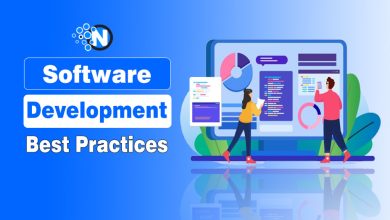Sports Software Development: Powering the Future of Wagering

Online sports have evolved significantly in recent years, thanks to the advent of cutting-edge technology and innovative software solutions. Sports betting software development plays a pivotal role in shaping the future of the wagering industry. This article will explain how a sports software development company may redefine the game through innovative solutions and pushing boundaries in an ever-evolving industry.
6 Key Aspects of Sports Betting Software Development
Sports betting software development is the unsung hero behind the scenes, powering the entire sports wagering industry. Hiring a reliable sports betting software development company can help you stand out among competitors by having a user-friendly and best-performing software. It shapes the way we bet on our favorite sports, offering not only convenience but also trust and reliability. Let’s take a more in-depth examination of its significance:
1. Seamless Betting Experience
At the core of sports betting software development is the creation of platforms and applications that provide a seamless betting experience. These software solutions are meticulously designed to be user-friendly, ensuring that bettors can easily navigate through the various betting options, odds, and markets. The goal is to make the betting process as straightforward as possible, even for those who are new to sports wagering.
2. Maintaining Data Integrity
One of the critical responsibilities of sports betting software development is to maintain the integrity of betting data. This includes ensuring that all odds, results, and payouts are accurately recorded and processed. Software engineers in Codein say that it is detrimental to the industry, because such discrepancies can lead to mistrust among bettors. Therefore, the software is built with robust mechanisms to prevent data tampering and provide a reliable betting environment.
3. Regulatory Compliance
The sports betting industry is subject to various regulations and compliance requirements. Betting operators must adhere to legal standards to operate legitimately. Sports betting software development takes this aspect seriously. It incorporates features and safeguards that help operators comply with local and international regulations. This not only protects the betting operators but also ensures that bettors are engaging in legal and fair betting activities.
4. Risk Management
Sports betting is not just about luck; it’s also about managing risk. Betting operators must set odds that balance the betting action on both sides of a wager. Sports betting software uses complex algorithms and real-time data analysis to adjust odds and manage risk effectively. This ensures that bookmakers can remain profitable and that bettors have a fair chance of winning.
5. User Account Management
Managing user accounts and ensuring their security is a significant aspect of sports betting software development. Bettors entrust their personal information and funds to betting platforms, and it’s crucial to keep this data secure. Sports betting software incorporates encryption and robust security measures to protect user accounts and financial transactions, thereby instilling confidence in bettors.

6. Betting Variety
The world of sports betting is diverse, with a multitude of sports, events, and betting markets. Sports betting software development caters to this diversity by offering a wide range of betting options. Whether you’re into football, basketball, horse racing, or eSports, there’s a betting market for you. This variety keeps bettors engaged and offers a plethora of opportunities for wagering.
Overview of Betting Platforms Evolution
The landscape of sports betting has undergone a remarkable transformation over the years, largely driven by advancements in technology and sports betting software development. This evolution has led to a more accessible, convenient, and engaging experience for bettors. The following table demonstrates the evolution of betting:
| Era of Betting | Description |
| Historical betting shops era. | Traditional brick-and-mortar locations for placing bets. |
| Digital transformation era. | Transition from physical betting shops to online platforms. |
| Mobile betting apps era. | The rise of smartphone apps for convenient and on-the-go-betting. |
| Live betting era. | Real-time, in-play betting during sports events for added excitement. |
4 Emerging Trends in Sports Betting Software Development
Sports betting software development is a dynamic field that constantly adapts to the changing landscape of sports wagering. Here are some of the prominent trends that are shaping the industry and enhancing the betting experience:
1. Blockchain Integration
Blockchain technology has made a significant impact on the sports betting industry. The use of blockchain provides transparency, security, and trust in betting operations. It offers a decentralized ledger system that records all transactions and bets, ensuring that they are tamper-proof and verifiable.
One of the key benefits of blockchain integration is transparency in payouts and winnings. Bettors can trace their bets and verify results independently, reducing disputes and increasing trust in the betting platform. This trend is likely to continue as the demand for fair and transparent betting experiences grows.
2. Artificial Intelligence (AI) Advancements
Artificial intelligence is at the forefront of sports betting software development. AI-driven algorithms are used to analyze vast amounts of data, such as team performance, player statistics, and historical outcomes. This data-driven approach helps bookmakers set more accurate odds and provide personalized recommendations to bettors.
AI also plays a role in risk management by monitoring betting patterns and identifying potential issues, such as suspicious activity or problem gambling. This proactive approach contributes to a safer and more responsible betting environment. As AI continues to evolve, we can expect even more sophisticated predictive algorithms and enhanced user experiences.
3. Virtual Reality (VR) Immersion
Virtual reality is not limited to the gaming world; it’s making waves in the sports betting industry as well. VR technology is changing the way we experience sports events. Through VR headsets, bettors can immerse themselves in a virtual stadium, feeling like they are right there in the stands.
This trend enhances the betting experience by creating a sense of presence and engagement. Bettors can watch live events in 360-degree views, placing bets while feeling as if they are part of the action. As VR technology becomes more accessible and affordable, we can expect this trend to expand, offering even more immersive betting opportunities.

4. Mobile-First Approach
The increased usage of smartphones in conjunction with this phenomenon has inclined the sports betting software development towards a “mobile first” strategy. Many betting platforms are improving their mobile applications and online services to offer convenient options that suit the needs of mobile gamblers.
In order to achieve success in the modern world, the “mobile-first” approach stresses responsiveness on smaller screens, fast loading and ease of use. The demand of a modern gambler to play on the go, the convenience factor is yet another trend that goes in line with this situation. It is without prejudice to state that mobile betting will be on the lead at this time and the programmers will further improve their mobile products to suite the bettors at large.
Betting on Tomorrow
Sports betting software development is at the forefront of transforming the betting industry. It’s driving innovation, improving user experiences, and ensuring the integrity of bets. As the industry continues to evolve, we can look forward to an exciting future with safer and fairer betting opportunities.
So, whether you’re a seasoned bettor or someone new to the world of sports wagering, it’s clear that technology and software are here to stay, making the sports betting experience better than ever.




